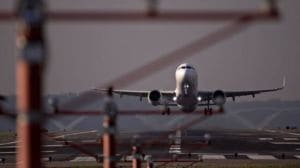SC brings Hindujas back in Bofors net
The Bofors case has survived the vagaries of the higher judiciary as the Supreme Court today upheld the CBI’s appeal and ordered the re...

The Bofors case has survived the vagaries of the higher judiciary as the Supreme Court today upheld the CBI’s appeal and ordered the resumption of the trial against the Hinduja brothers.
This dispels an uncertainty first created in June 2002 by a Delhi High Court judge, Justice R S Sodhi, who quashed the chargesheet against the Hindujas by laying down an altogether new rule that the CBI needed to take the permission of the Central Vigilance Commission before seeking to prosecute anybody.
Sodhi’s judgment in fact put a question mark over all the CBI cases as the agency had not taken the CVC’s permission in any of them. His ruling was based on a controversial interpretation of the Jain hawala verdict in which the Supreme Court sought to ward off extraneous pressures in sensitive cases by putting the CVC as a buffer between the CBI and the Government. When the CBI filed its appeal in July 2002, a bench headed by the then
Chief Justice of India, Justice B N Kirpal, was so outraged that it stayed Sodhi’s judgment right in the first hearing without waiting for theHindujas’ reply and directed the trial court to continue with the proceedings.
But in December 2002, shortly after the trial court framed the charges against the Hindujas, a bench headed by Kirpal’s successor, Justice G B Pattanaik, stayed the trial pending the disposal of the CBI’s appeal against Sodhi’s judgment.
In today’s judgment, an apex court bench, comprising Justice S Rajendra Babu and Justice G P Mathur, finally set aside Sodhi’s order and observed that it was ‘‘quite confusing and self-contradictory.’’
Putting the Jain hawala verdict in a proper perspective, the bench said ‘‘the judgement nowhere says that the CBI will have to take concurrence or sanction from the CVC before filing a chargesheet in the court.’’
Accepting the arguments of Solicitor General Kirit Raval, who appeared for the CBI, the Supreme Court said the accused had been given no right ‘‘to approach the CVC or to challenge the action of the CBI in the submission of the chargesheet in the court on the ground of some purported irregularity in making a report to the CVC regarding progress of investigation.’’
Analysing the inherent contradictions in Sodhi’s findings and his ultimate conclusion, the bench said that from the findings it would have been logical for the high court to dismiss the petitions filed by the Hindujas.
‘‘There was absolutely no occasion for allowing the same and quashing the cognisance and further proceedings in the case,’’ it added.
On the supervisory role envisaged by the Jain hawala judgment, the bench clarified that the CVC’s duty was limited to ensuring that the CBI discharged its duties without any interference and without any undue favour to any person.
Photos


- 01
- 02
- 03
- 04
- 05





























